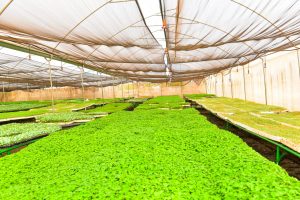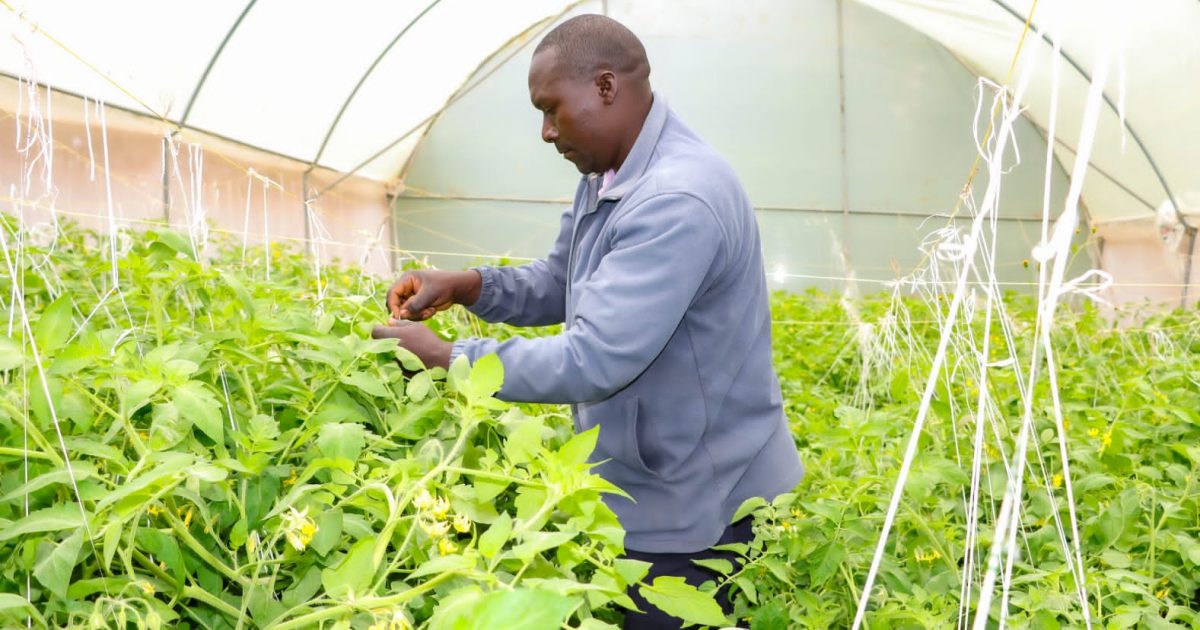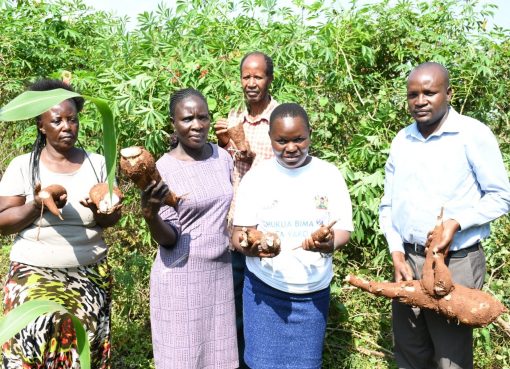The County Government of Kirinyaga is supporting tomato farmers to increase production in readiness for the upcoming Sagana Agro-Industrial City that will incorporate a tomato processing factory.
To scale up production, the county government has supported 69 community groups in construction of tomato greenhouses and propagation of high yielding disease tolerant varieties as well as capacity building along the tomato value chain.
The county farmers will be the major beneficiaries of the upcoming agro-industrial city since they will have a ready market for their produce. Additionally, they will be cushioned against post-harvest losses and reap more from value addition of their crop.
Through Tomato Growers Cooperative Societies, farmers will be able to aggregate and negotiate for a better market for their produce and get training so that they are part of the supply chain of the Tomato Processing Factory.

Mr. James Muriithi, the Chairperson of Mwihotori Kerugoya Youth Group said his group was supported to construct a green house, install a drip irrigation system and be supplied with high yielding and disease resistant tomato seedlings. The members are also continuously educated on good agricultural practices thus enabling them to nurture their crop as required.
Muriithi said that while the crop under the group project is already at fruiting stage, members have also replicated the project at individual level in their farms utilizing the knowledge gained from the group project.
“The advantage of greenhouse farming is that the tomatoes are highly protected from diseases and pests thus reducing the need to use herbicides and pesticides and eventually reducing cost of production,” said Muriithi.
Michael Njue, beneficiary of seedling in seedling propagation, runs an enterprise in Kimbimbi, Mwea where he established a greenhouse after undergoing training by the County Government.
He initially ran a traditional tree nursery but after the capacity building, he was able to set up a greenhouse and adopt modern seedling propagation technologies, which has led to increased production and reduced labor. He said that he was also trained on marketing and has been able to get customers throughout the country through online marketing strategy.
“Through the seedlings business, I have been able to meet my basic needs and acquire properties as well. I have also created employment opportunities for seven people and I contract more during the high season,” he said.
Njue is hopeful that with the establishment of a tomato processing factory, demand for seedlings will be high since more farmers will be growing tomatoes. He thanked the county government for supporting farmers, noting that agriculture is the backbone of the county’s economy. He urged the youth to venture into agri-preneurship saying that there is money in the soil.
By Mutai Kipngetich





